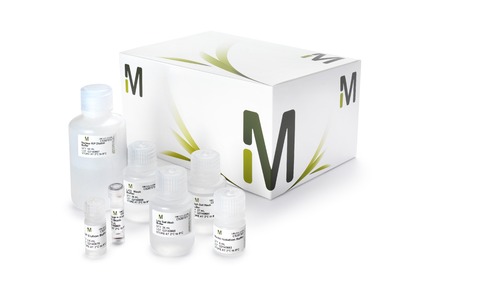
Merck Millipore has launched Magna Nuclear RNA-binding Protein Immunoprecipitation (RIP) kits, designed to allow the discovery and analysis of both coding and non-coding chromatin-associated RNAs.
Two versions of the kit are available, enabling users to analyse RNA both strongly and weakly associated with chromatin; one version uses cross-linked chromatin while the other uses native chromatin.
Native RIP allows recovery of high affinity, more direct interactions while the cross-linked method is designed to capture higher molecular weight complexes and more readily trap weaker interacting RNAs.
Magna Nuclear RIP kits are designed to deliver low background signals, high signal-to-noise ratios and have been demonstrated to work in RNA-seq to enable NGS-based discovery and profiling.
The kits offer flexible and scalable input requirements; RNA can be recovered from as few as 5,000 cells (cross-linked) or 100,000 cells (native).
“A significant amount of research is being invested in understanding the complex nature of how various chromatin-associated RNAs impact gene expression and epigenetic regulation,” said Christophe Couturier, senior vice president and head of the Merck Millipore Bioscience Business Area.
“With the Magna Nuclear RIP kits, researchers now have complete, user-friendly kits to facilitate isolation and identification of regulatory RNAs such as short and long non-coding RNAs, snRNAs and enhancer RNAs.”
The latest kits add to the family of Magna RIP kits first introduced in 2009, which allowed for analysis of cytoplasmic and nuclear-associated RNA molecules.
With Magna Nuclear RIP kits, researchers can target those proteins associated with RNA in a chromatin context.





